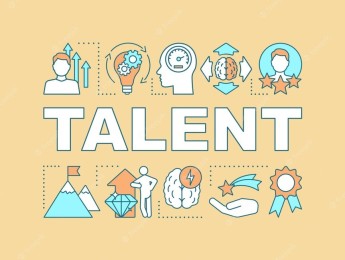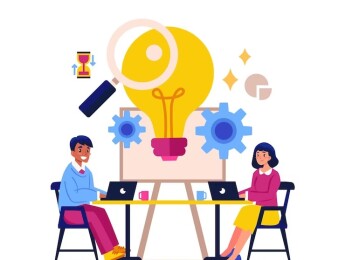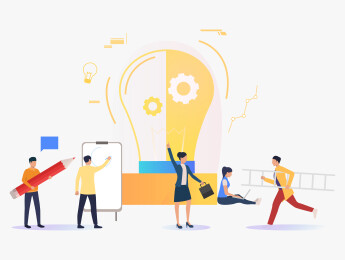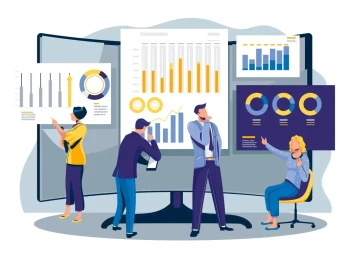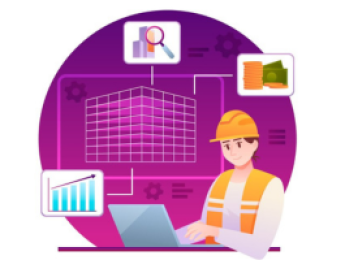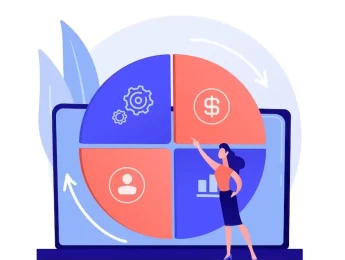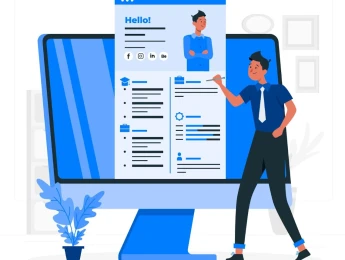Many forward-thinking business owners realise that simply giving orders isn't the most effective way to get work done. Research shows that employees are more motivated and productive when they are free to make their own choices and follow paths they enjoy.
Empowering employees to make workplace changes and assess risks allows them to take ownership and pride in their projects. This can start with small steps, such as choosing their work location or setting their own shift patterns, and progress to project management and KPI monitoring.
Evidence shows that employees are given autonomy, put in more effort, train others, and naturally delegate, leading to continuous departmental improvement. This benefits the company with hard-working employees and allows staff to develop skills and experience for career progression.
Upon completion of this course, participants will be able to:
- Develop an understanding of how delegation can increase motivation.
- Empower employees to make their own decisions.
- Pass along the training responsibilities to those who have already done the role.
- Develop mentoring skills in your departments so that the experience filters through.
- Increase the coaching culture in your workplace and teach more motivational coaching techniques.
- Allow your employees to explore and develop their own skills.
- Understand the changing development culture and use it to continuously improve your business by using the people in your front-line roles.
This course is designed for anyone responsible for managing the continuous improvement of a department and motivating a team of dedicated employees. It would be most beneficial for:
- Business Owners
- Directors
- Operations Managers
- Supervisors
- Team Leaders
- HR Personnel
- HR Business Partners
- Talent Managers
- Coaches
- Training & Development Managers
This course uses a variety of adult learning styles to aid full understanding and comprehension. Participants will participate in interactive seminars to discuss leadership changes and develop the most practical management and coaching techniques to help make these changes a reality.
They will participate in practical group activities to try out their new delegation and coaching methods and discuss how empowerment could affect them in their personal roles. They will review various real-world examples of this new management style being used effectively and discover how to migrate the new culture into their own business gradually.
Day 5 of each course is reserved for a Q&A session, which may occur off-site. For 10-day courses, this also applies to day 10
Section 1: Individual Learning Styles & Strategies.
- How do people learn?
- Honey & Mumford Learning Styles.
- Various learning strategies.
- Learning on the job.
- Making every activity a learning opportunity.
- Creating individual development plans that have a single, collective goal.
- The importance of considering learning styles.
- Individual SWOT plans.
Section 2: Empowering Your Employees
- The principles of employee empowerment.
- How employee empowerment could benefit your business.
- Transforming your leadership styles across the business.
- Competitors and cultural influences.
- How to communicate effectively without giving orders.
- Suggesting change without enforcing it.
Section 3: New Coaching Styles & Training Delegation
- Make changes to your coaching matrix.
- Coaching and interventions - the differences.
- Coaching skills and cycles.
- PDPs, PIPs, and performance management.
- Motivational-based leadership.
- Reward rather than punish.
Section 4: Talent Management & Mentoring Your Employees
- Developing an effective mentoring relationship.
- Common mentoring tools and techniques.
- Formal vs. informal mentoring - the benefits of both.
- Talent management systems and scorecards.
- Succession planning and delegation.
- Training down the succession line.
Section 5: Aiming for Continuous Improvement & Creating A New Workplace Culture
- Your continuous development culture.
- Thinking about your future.
- Process and journey mapping to agree on future goals.
- Data-driven monitoring and success scoring.
- Identifying disempowerment and making a change.
- Personal action planning.
- Employee action planning.
- Establishing your business as a ‘’learning first’ business.
Upon successful completion of this training course, delegates will be awarded a Holistique Training Certificate of Completion. For those who attend and complete the online training course, a Holistique Training e-Certificate will be provided.
Holistique Training Certificates are accredited by the British Assessment Council (BAC) and The CPD Certification Service (CPD), and are certified under ISO 9001, ISO 21001, and ISO 29993 standards.
CPD credits for this course are granted by our Certificates and will be reflected on the Holistique Training Certificate of Completion. In accordance with the standards of The CPD Certification Service, one CPD credit is awarded per hour of course attendance. A maximum of 50 CPD credits can be claimed for any single course we currently offer.
Tags
Talent Management, workplace, Employee, Training, Development, Empowerment, learning, coaching,- Course Code MG2-139
- Course Format Classroom, Online,
- Duration 5 days





